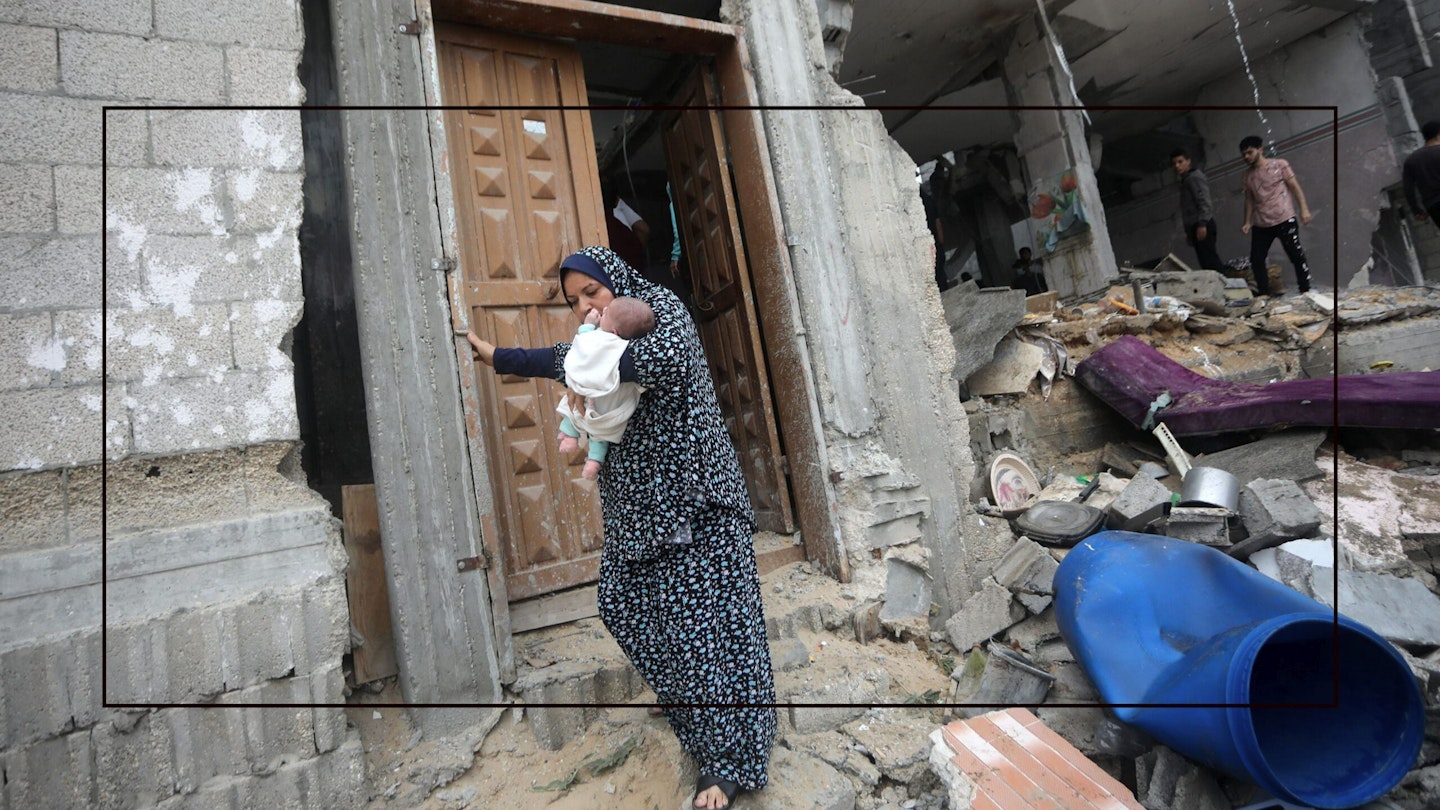Trigger warning: this article contains details that some readers may find disturbing
Every time I hear bombing, I feel paralysed. I want to get up and run to my children, but I can’t move until after it stops. I am so terrified. We are suffering; I fear for my children and unborn child.’ Farah* is one of an estimated 50,000 pregnant women in Gaza currently caught up in the conflict between Hamas (the militant Palestinian group that rules the Gaza Strip) and Israel. On 7 October, Hamas killed more than 1,400 people in Israel in an unprecedented terrorist attack, and took 222 hostages. Israel has launched retaliatory airstrikes and, at the time of writing, Israeli tanks had crossed into Gaza for a ‘targeted raid’. The death toll in Gaza is estimated at almost 9000 according to the UN with an estimated 1.4 million people displaced, and near 629,000 living in emergency shelters. All the while, thousands of pregnant women and new mothers in Gaza remain in danger. Israel’s blockade has cut off electricity, water, and fuel to the area, which is also hindering humanitarian aid getting to civilians. Hospitals across Gaza are now overwhelmed with patients and running out of supplies – including for the management of pregnancy or childbirth emergencies.
According to the United Nations Population Fund (UNFPA), 160 women will give birth every day in Gaza against a backdrop of bombs and violence. Aisha* , a mother of two from northern Gaza, is currently nine months pregnant. ‘My house was destroyed after the bombing, so I sleep in the street with my husband and two daughters,’ she says. ‘We don’t have diapers for the baby or clothes. We can only get water from the hospital, so I take my daughters there to drink and shower, as I’m close to delivery. When we hear the bombing, we see death. But what can we do? This is our life now and we have to endure.’
Fears remain around what will happen when the time comes for these women to give birth. One woman told UNFPA that she went into labour while her family was evacuating their home due to bombing. ‘I had no idea where or how I was going to deliver my baby,’ she said. While she did manage to reach an ambulance in time and was transported to the maternity ward at Al-Shifa Hospital, the largest medical facility in Gaza, she was discharged just three hours after giving birth to make space for other arrivals. Sabine gave birth to her baby seven days ago and is currently sheltering in a school in the south of Gaza. ‘Here, there is no water or food,’ she tells Grazia. ‘Under these conditions, we cannot go out. We couldn’t even get registration papers for my son. We don’t have nappies or milk. My son’s body has begun to appear yellow due to the lack of breastfeeding. What did my child do wrong?’
According to the Gaza Ministry of Health, incubators used for premature babies in critical conditions are being shut down due to fuel shortages. In Al-Aqsa Hospital in central Gaza, aid workers warn that 130 premature babies currently being treated in incubators are at ‘grave risk’. ‘We have reached a point where midwives are having to assist in delivering babies over the phone, as there’s no security even in childbirth,’ a spokesperson from one of Oxfam’s partners, Palestinian Medical Relief Society, told Grazia. ‘Aid in this situation is desperately needed. People are not only being killed in the attacks, but also from diseases caused from unsanitary conditions and shortages of essential medical supplies.’
Soraida Hussein-Sabbah, Gender and Advocacy Specialist for ActionAid Spain, warns that none of the pregnant women in Gaza will be able to give birth as normal. ‘I expect that some women will have to give birth in the shelter where they are. Any that can make it to a hospital, the only hope is that they will not cut the electricity before or during the birth.’
To help the UNFPA support pregnant women, you can donate at unfpa.org/ donate/Gaza selected.
*Names have been changed
